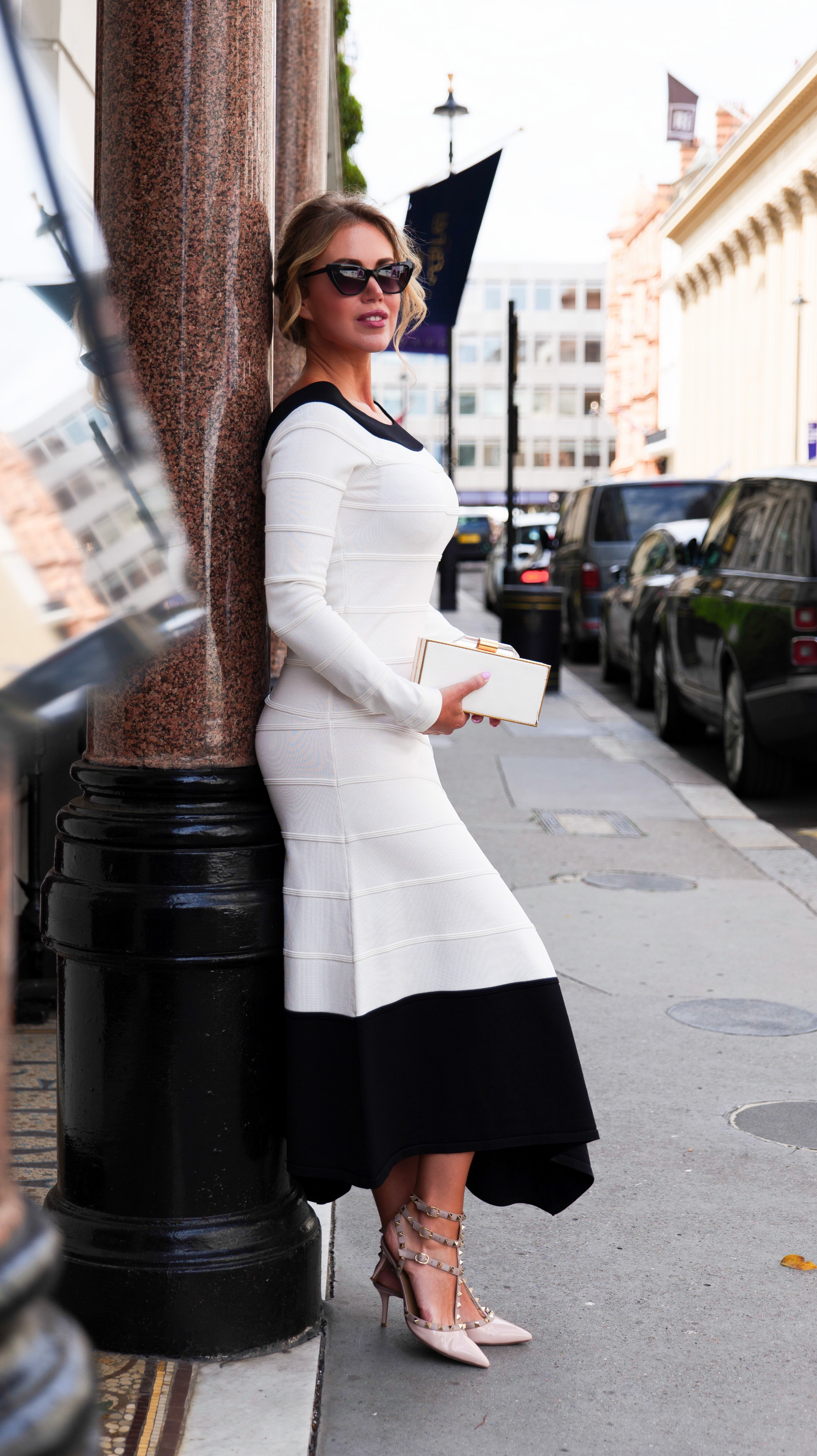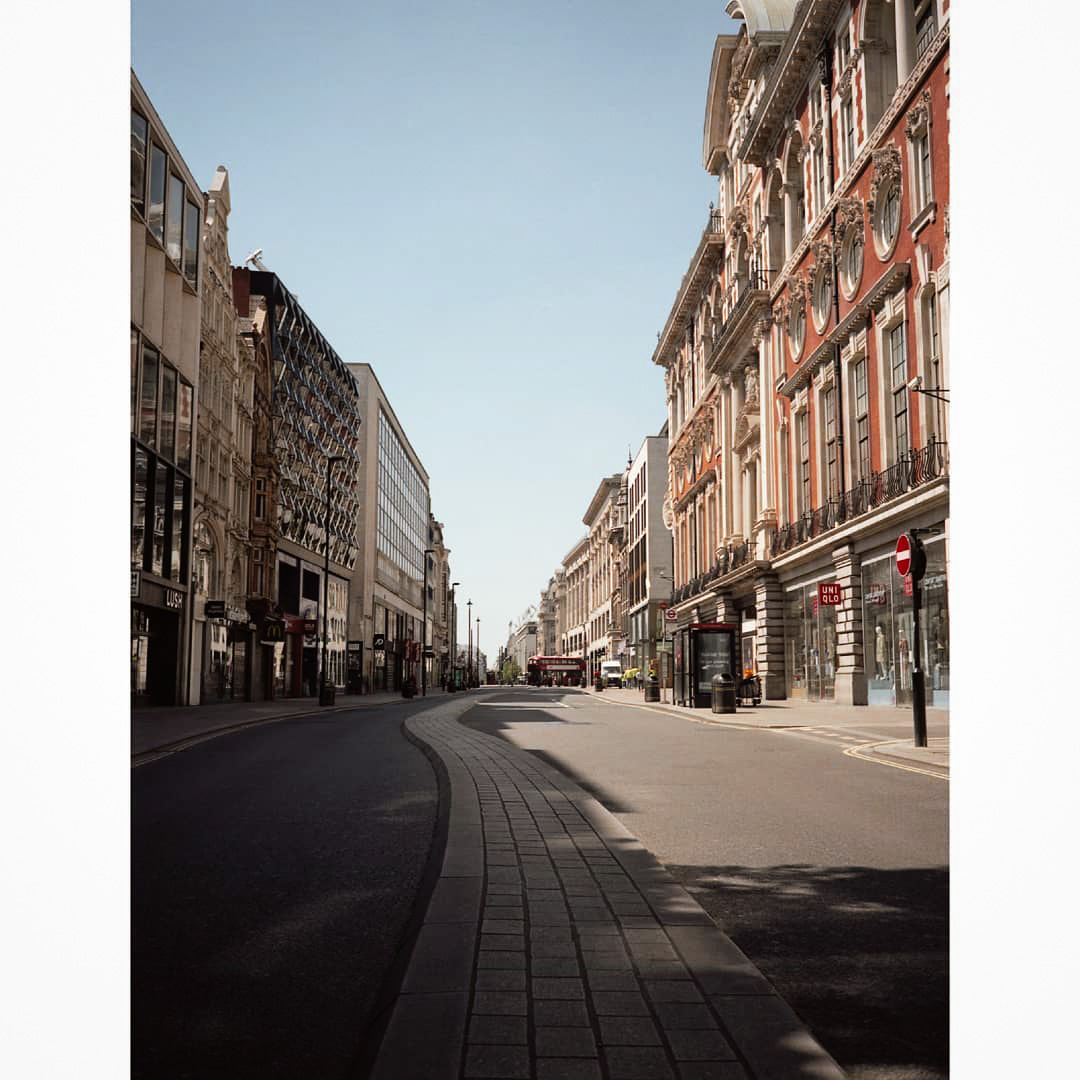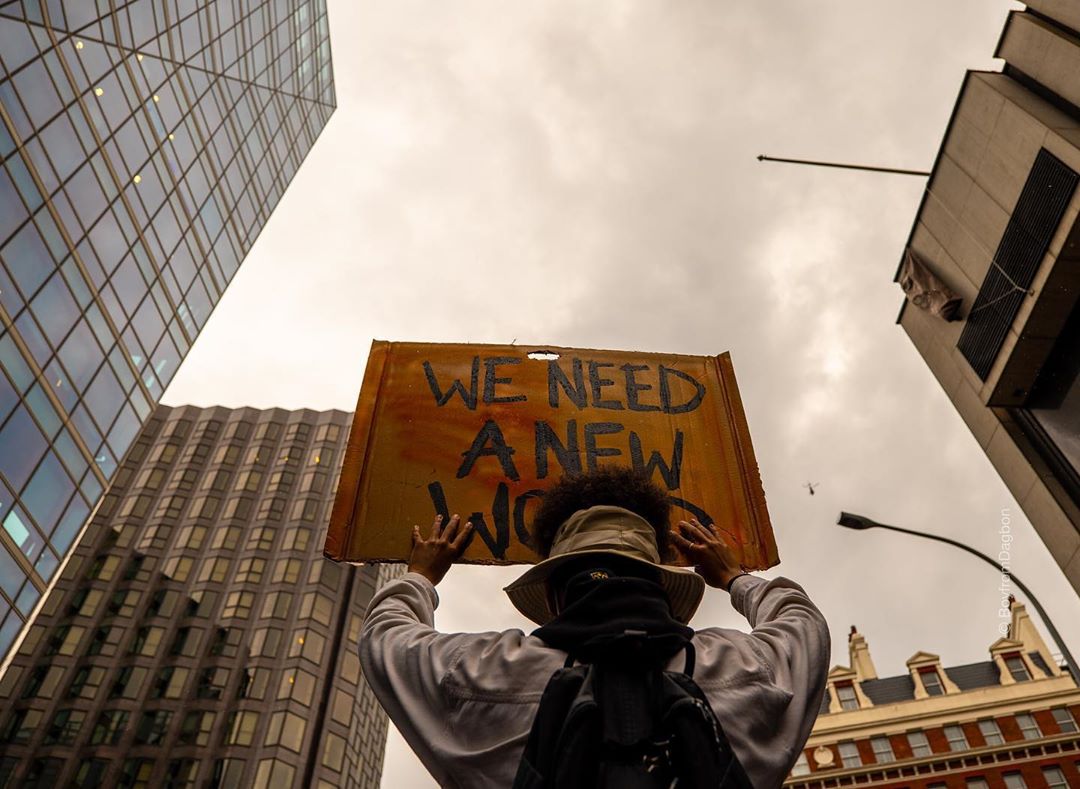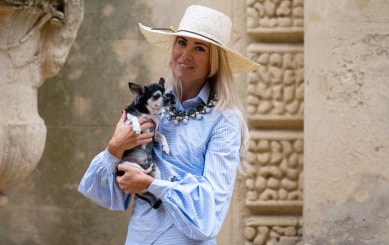The fashion world is in crisis. Covid-19 has brought the industry to a grinding halt, forcing workers and consumers to scrutinise every facet of the business, from its less-than-ethical supply chain to the ideologies behindits very existence.
 I’m wearing Amanda Wakeley dress
I’m wearing Amanda Wakeley dress
But could the pandemic also be seen as a vast and very open window of opportunity for fashion – one that has the potential to spark real, palpable change? Despite atumultuous road ahead, ‘glass half-full’ folk will be hoping this unexpected shakeup is sewing seeds of global change by teaching new and vital lessons on sustainability and workers’ rights, as well as diversifying the power systems that uphold a now out-dated industry.
Sustainable fashion has slowly been working its way into the mainstream, but all of a sudden the discussion on how to create a more ethical, less destructive business model is more important than ever. Growing cracks in the system are being exposed, particularly in the countries that produce fast-fashion.
In Bangladesh, for example, garment workers are facing the emergence of a “new poor” class, as the impact of the pandemic reveals a more than 70 per cent drop in income for people already living in poverty. Brands from Zara to Kendall + Kylie are pulling orders from factories, with little heed of the effects.
Women are particularly affected by this, making up roughly 80 per cent of readymade garment workers. Indeed European imperialism is woven into the very fabric of the fashion industry, which champions the sourcing of ever-cheaper labour to produce ever-cheaper clothing.
“My hope for a post-coronavirus future is one that values those in the supply chain,” fashion journalist Aditi Mayer tells the Guardian. “Garment workers are the heart of the fashion industry but are treated the worst and often come from the most marginalised communities.”
With so much of the industry on hold, there surely couldn’t be a better time to reimagine new systems – both fairer and greener. In Bangladesh alone, carbon emissions dropped by 24% during enforced lockdown.Forward-thinking designers such as Rahemur Rahman are now asking if consumers really need more than two collections per year.
On June 2nd, the European Union pledged to donate €113 million to support garment workers who have become unemployed and lost income due to the impacts of the pandemic.
This initiative highlights the need for long-term sustainable solutions. If the EU and other governing bodies were to impose legal responsibilities on companies for rights abuses in their global supply chains, this could have a truly meaningful impact on fashion’s unheard voices.
But as fast-fashion flounders, slow fashion is showing off its resilience. Covid-19 has also shed light on the fashion labels that are navigating the crisis with poise – and they’re certainly not the big names we all know. Businesses based around uplifting communities and ecosystems have weathered the storm far better than the powerful, profit-orientated brands.

Global lockdowns have further emphasised the notion of buying less, buying better and buying local. As it stands, nearly three-fifths of all clothing produced ends up in incinerators or landfills within years of being made, while fashion is responsible for 10% of global greenhouse gas emissions. If high street players want to survive, they may need to do more than just source a few sustainable fabrics. Stores should see the potential to reopen with new ways to recycle, repair, reuse, swap or even resell clothing.
The popularity of apps such as Depop and Vinted proves that there’s huge market potential here.
What’s more, while not directly linked to Covid-19, recent developments in the Black Lives Matter movement have sparked widespread calls to action when it comes to diversity in fashion. Built-in racism is being exposed from the top down and many major brands are facing harsh and necessary scrutiny. Social media is awash with advice on how to support businesses run by POC, as well as calls to boycott brands that promulgate a racist rhetoric. These are all steps in the right direction.
 Photo by Abdel Abdulai
Photo by Abdel Abdulai
A system that promotes over-consumption is never going to be sustainable and both fashion workers and shoppers have watched the capitalist structure falter for years.
Coronavirus has exposed a model that is far from resilient. In fact, we can now see that it’s a systemperpetually teetering on the edge.
Fashion employees and our ever-consuming public must demand change, put their money where their mouth is and push for a sustainable future. “Business as usual” is not going to cut it.
Written by Thea Carley



